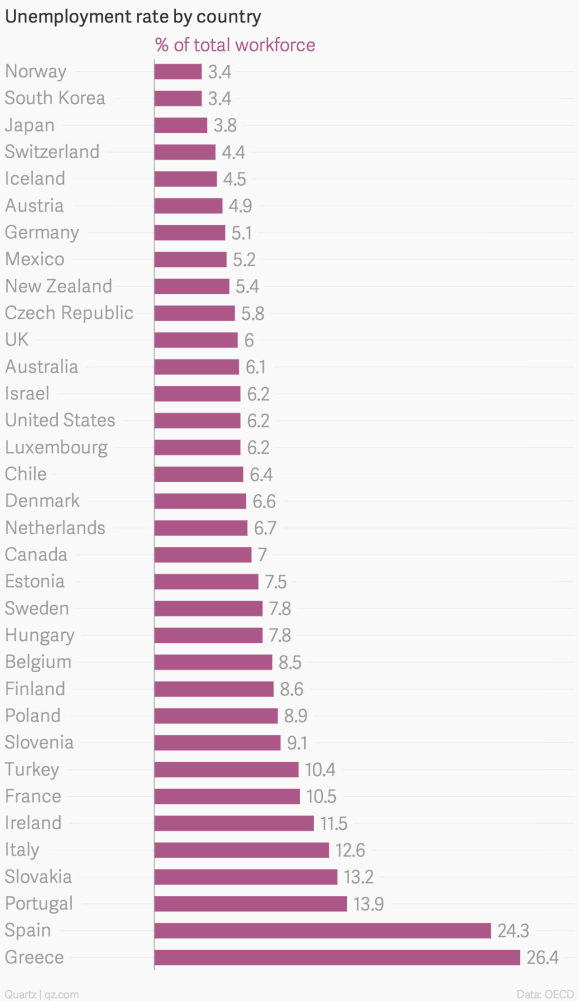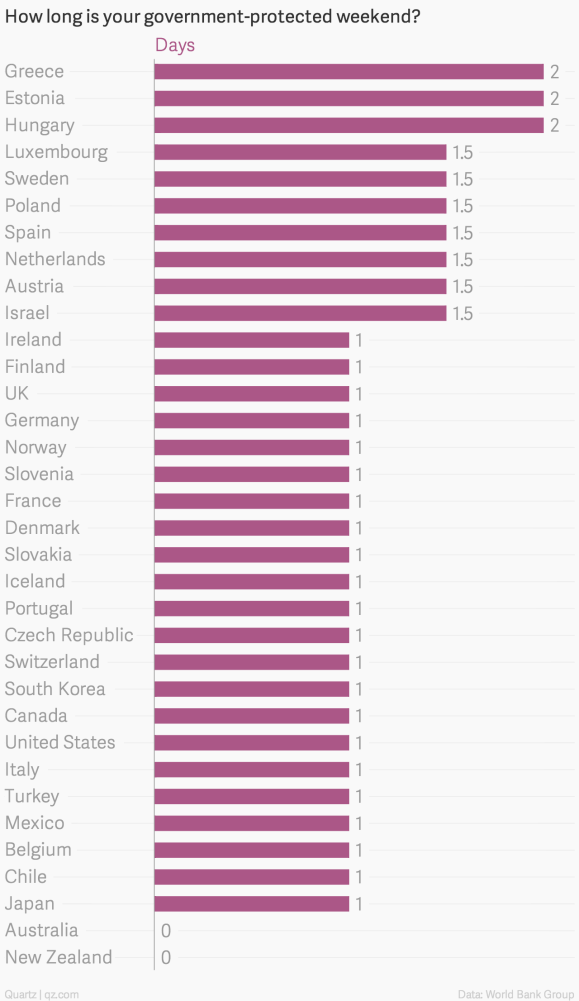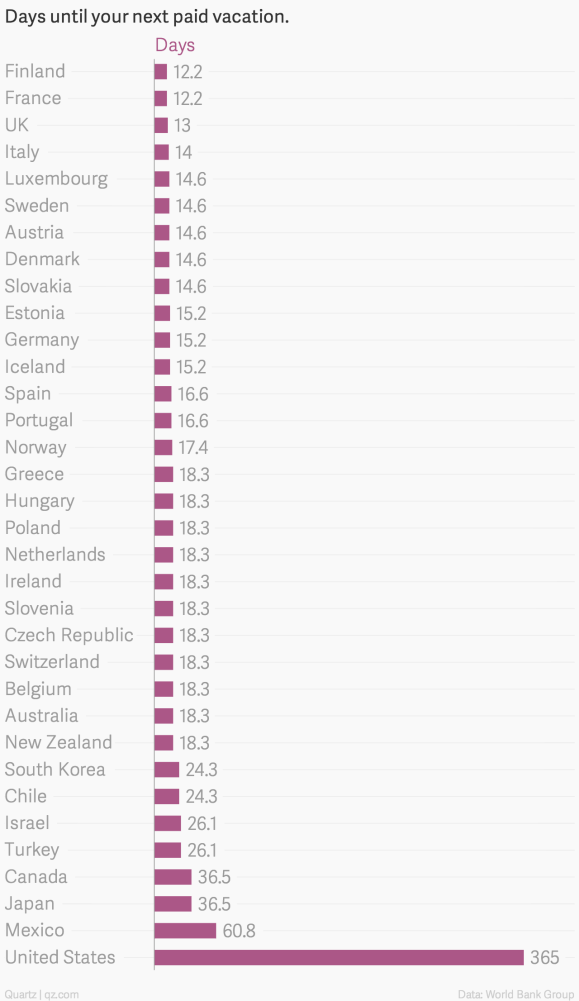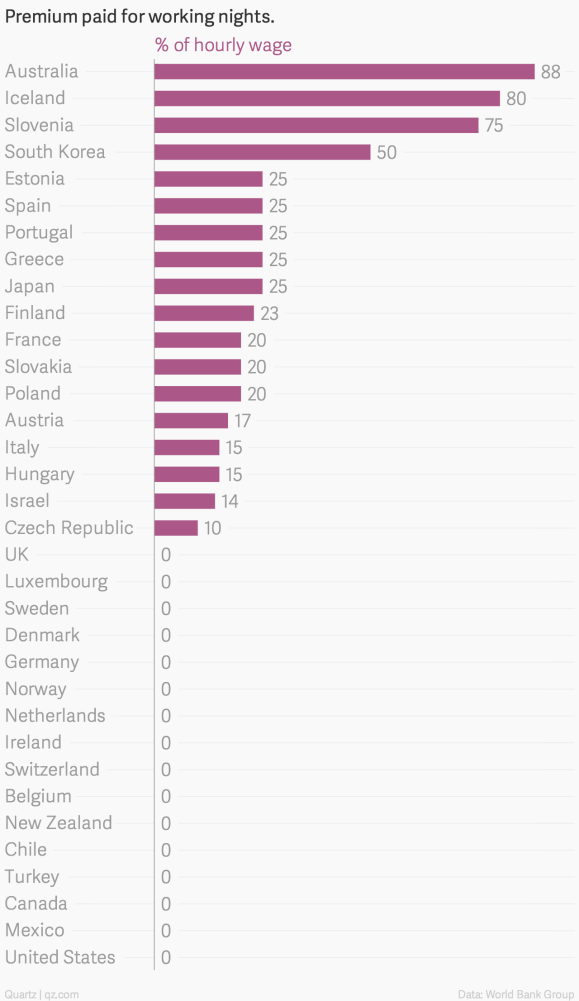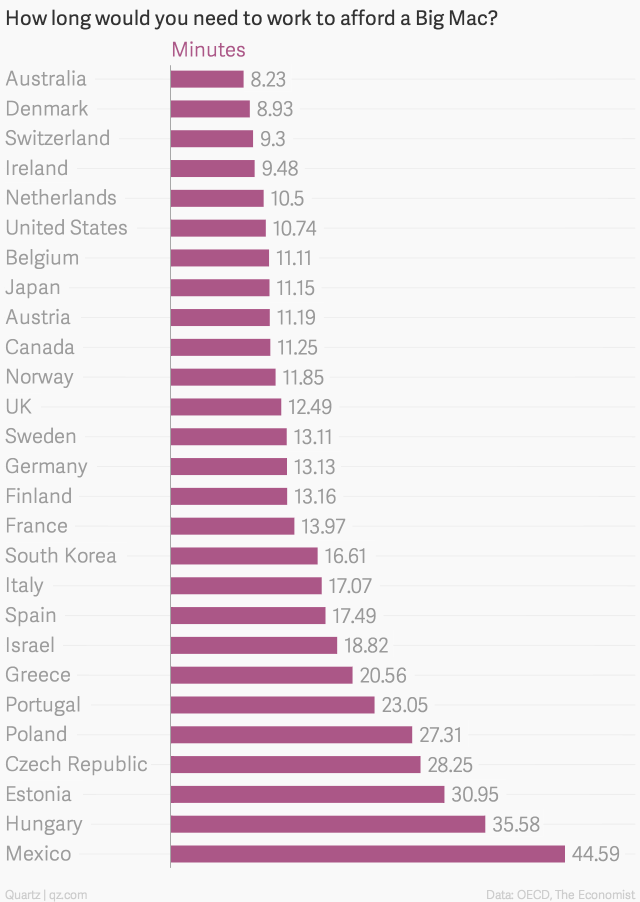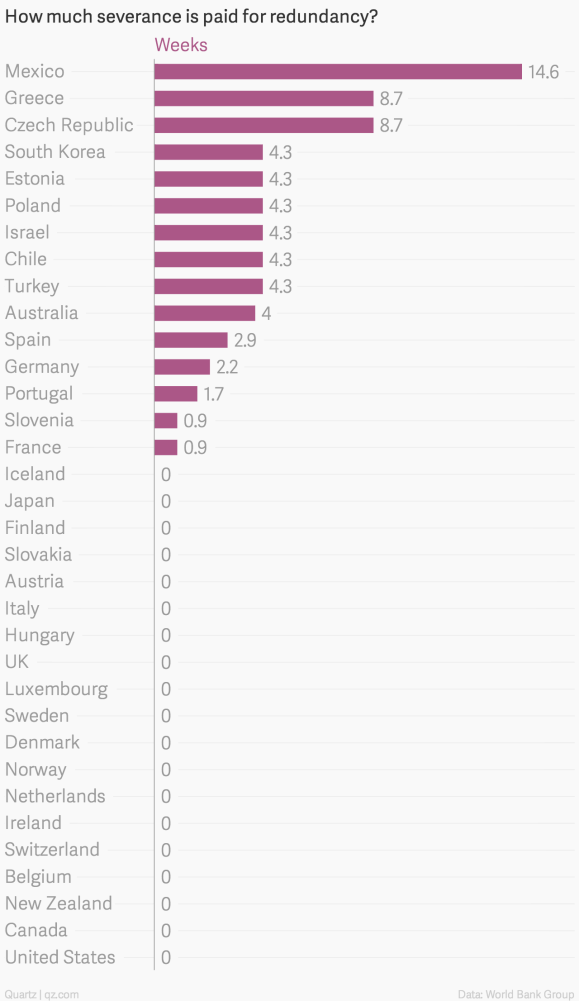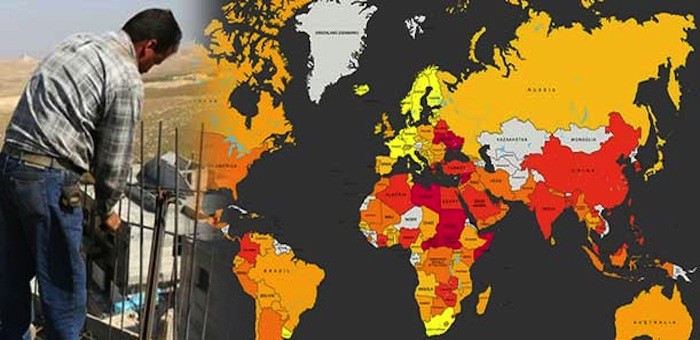The best places to work in Europe are documented in the charts below, by Quartz. They show everything from employment rates to working conditions to illegal employment. Of course, while all these laws are good on paper, Greek employment relations have sadly deteriorated since the advent of the troika of Greece’s international creditors from the European Commission (EC), European Central Bank (ECB) and International Monetary Fund (IMF) and huge hike in unemployment (see first chart) with what is written by law is not followed by some companies that are taking advantage of the situation to squeeze more unpaid hours of work from their employees without respect to their inalienable rights as far as holiday leave and overtime is concerned.
How much unemployment is there in your country?
How many days off are you entitled of during the week by law?
How many days until your next paid vacation?
What percentage of the average wage is the minimum wage in your country?
How much extra payment for overtime in terms of percentage of the hourly wage? (NOTE: In Greece, this is the case by law, with most night shift workers in private companies written on paper as day workers.)
How many minutes must you work to be able to afford to buy a Big Mac hamburger at McDonalds?
How much severance pay are you entitled to?
This year’s report by the International Trade Union Confederation (ITUC) ranked Greece among the world’s worst countries for workers concerning the abuse of labor union rights. The survey classified the countries in five categories with a 5+ category being for countries where there were no guarantee of rights due to a breakdown in the law. Greece was classified as a category 5 country, one of the worst to work with despite its legislation spelling out certain rights. Certain, though not all, employers are taking advantage of the crisis to ensure that workers effectively have no access to these rights.
Ask me anything
Explore related questions

